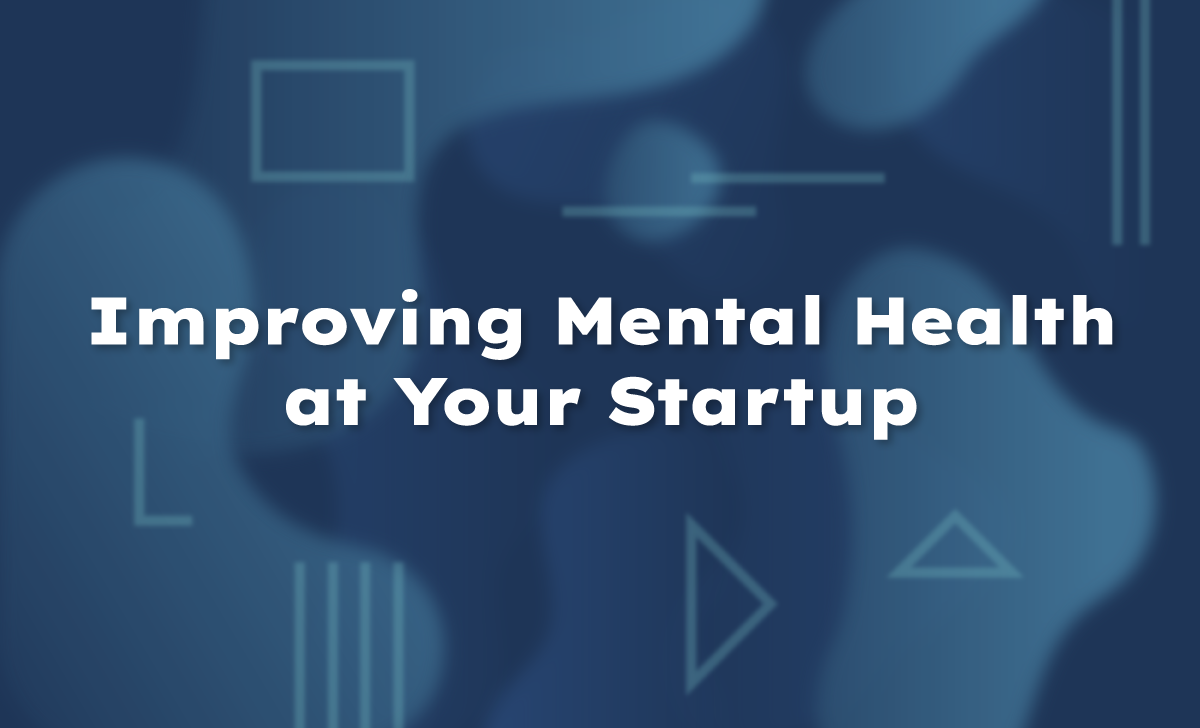Improving Mental Health at Your Startup
Burnout and mental well-being in startups are even more precarious than in traditional work settings. Tight deadlines combined with fewer resources, a lot of ambiguity, and a high likelihood of failure place substantially more stress on startup teams and founders.

This past March, Indeed.com released survey results indicating that more than half of current employees are feeling burnt out, with over two-thirds attributing the burnout to the ongoing pandemic.
Prolonged burnout can have serious consequences—both for individuals and their teams. Symptoms of employee burnout include increased cynicism and difficulty engaging at work. Oftentimes, this leads to decreased productivity and a lack of job satisfaction.
Burnout and mental well-being in startups are even more precarious than in traditional work settings. Tight deadlines combined with fewer resources, a lot of ambiguity, and a high likelihood of failure place substantially more stress on startup teams and founders. With all this in mind, it is important to set up guardrails early on to ensure you and your team are paying attention to mental health. Here are a few of our recommendations to alleviate burnout and reduce mental stress across your organization:
Require paid time off every quarter
Startups are known to provide unlimited PTO policies, but few people take advantage of the benefit. Managers and founders need to enforce PTO. Require a minimum number of days off per quarter, and set up quarterly reminders to check in on people who have not taken any time off. Lastly, make sure people truly disconnect from work when on PTO - this means setting up out-of-office messages and muting Slack. When you’re taking time off, don’t apologize for it.
Knock it off with the Zoom happy hours
Along with the pandemic, zoom happy hours need to end. While fun the first one or two times, post-work team events over video conferencing tools have gotten out of hand, and are doing more damage than good. Most people already spend hours per day sitting in front of their webcam; the last thing they want to do is spend another hour listening to one or two people run a conversation. As a better solution, give people time to unwind and give everyone credits for Drizly or Grubhub to grab drinks or dinner on their own terms.
Get everyone together – safely
Get your team together for something as simple as lunch or in-person meetings. Facetime is still extremely valuable in this remote-first world. At the end of the day, people stay at a company because of their co-workers and managers. If your team has gone fully remote, do this at least once per quarter. Of course, this recommendation comes with the major caveat of having appropriate safety measures.
Compensation isn’t just about money
Salary and equity are still the core form of compensation for most companies. But a quick way to stand out is to offer expanded ancillary benefits. Some of the largest stressors today involve healthcare and childcare. Consider no-premium health insurance coverage and expanded child care offerings through things like a DCFSA. Top firms are even offering subsidized daycare and after-school programs. This is not viable for every firm, but there are other creative options like giving new parents a years-worth of diapers. And for those without children, doing things like sending your employees a new desk plant or paying for subscriptions to meditation apps and at-home exercise programs can be game-changers.
Limit communication outside of work hours to emergencies only
This is a tough one for startup founders and operators. While speed is the name of the game in the startup world, you need to keep things in perspective. Constantly pinging team members on weekends and in the evenings may move the needle in the very short term, but it will erode team morale over time.
Mental health is important for the entire company, but for founders especially. Carrying the weight of people’s livelihood on your shoulders takes its toll. If you are a founder, you should work with an executive coach to help you through the tough times of the business. What’s even better is working with a professional therapist to discuss personal challenges that evolve from your startup stress. Don’t be shy about opening up and finding help when you are struggling.